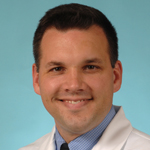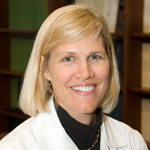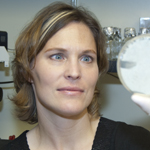Three Washington University School of Medicine researchers have received grants from the Children’s Discovery Institute to advance their work into childhood diseases.
The Children’s Discovery Institute is a partnership between Washington University School of Medicine and St. Louis Children’s Hospital to accelerate better treatments, cures and preventions for childhood diseases.
Todd Druley, MD, PhD, received a CDI Faculty Scholar Award for his research into the genetic basis of a fast-growing cancer of the white blood cells called high-risk acute lymphoblastic leukemia (ALL) that primarily affects teenagers .

Druley
Through his work in the Center for Genome Sciences and Systems Biology, Druley developed a method in 2009 for surveying many genes in a pool of DNA from more than 1,000 people using next-generation sequencing. This work was published in Nature Methods. Now, he is applying that method to children with high-risk ALL looking for genetic mutations that may be behind the cancer.
“It is unlikely that there will be one or two mutations in DNA that cause children to get ALL,” he says. “We predict that there will be a lot of different mutations in a lot of different genes that have little consequence individually, but can have a synergistic effect that results in a serious problem.”
By targeting genes already identified from genome-wide arrays done on children with high-risk ALL, Druley will study several hundred genes in about 450 DNA samples from children enrolled in nationwide high-risk ALL trials.
High-risk leukemia affects about one in 100,000 children, but unlike standard-risk ALL, is curable only about 65 percent to 75 percent of the time. Unfortunately, physicians haven’t made much progress in treating the disease with chemotherapy, so many patients require bone marrow transplants, which can be difficult physically and emotionally for these teens.
“We hope to understand how high-risk ALL is coming about in the first place so we can design more effective treatments,” says Druley, an assistant professor of pediatrics and of genetics at the School of Medicine who also treats patients at St. Louis Children’s Hospital.
Druley began the work as a postdoctoral researcher in the Washington University lab of Robi Mitra, PhD, assistant professor of genetics, in the Center for Genome Sciences and will continue the work with the CDI grant through at least 2013.
Kelle Moley, MD, has received a grant from the Children’s Discovery Institute to facilitate research among Washington University researchers on pregnancy, maternal-fetal interaction and pediatric diseases.
The project, the Women and Infants Health Specimen Consortium (WIHSC), will collect tissue samples such as cord blood and amniotic fluid from mothers and their infants and link them with a clinical database. Participants will be recruited from the Washington University Reproductive Endocrinology and Infertility Clinic and the Center for Advanced Medicine. This project is unique, Moley says, because individual mother-infant pairs will be followed before, during and after pregnancy.

“Washington University has many researchers who study women and infants’ health, disease, fertility, pregnancy and the neonatal period,” says Moley, the James P. Crane Professor of Obstetrics and Gynecology. “The pooling of resources could lead to increased access to a collection of specimens from pregnant and nonpregnant women, which would undoubtedly help facilitate research.”
Samples collected through the WIHSC will be available to School of Medicine investigators to study areas such as fetal and developmental origins of childhood diseases; the interaction and communication between the fetus and mother in utero; and to possibly identify biomarkers that predict poor pregnancy and poor infant outcomes, such as miscarriage and pre-term births.
“This consortium has the potential to become a vital source of tissue and patient data, from both mother and child, needed to accelerate new pathways to discovery in childhood disease,” Moley says.
Ann Gronowski, PhD, associate professor of pathology and immunology, and Marwan Shinawi, MD, assistant professor of pediatrics, are co-principal investigators of the WIHSC.
Sheila Stewart, PhD, received a grant to expand a library of molecular tools that can selectively turn off every gene in the mouse genome.
Called an shRNA library, it is a resource that allows researchers to “knock down” or deplete a gene of interest. By turning off a gene and observing the consequences, scientists can gain insight into that gene’s role in the biological process. This library will provide the Washington University research community with the tools to study human disease in a mouse model at a much lower cost.
Deleting or inserting a gene and observing the consequences is not a new research technique. While this technology has changed the way researchers ask important questions, standard methods can be cumbersome, time-consuming and expensive. An shRNA library, however, takes advantage of RNA interference (RNAi), a more recently discovered mechanism for turning off the expression of genes. Normally, a gene codes a strand of messenger RNA, which then codes for a protein. Traditionally, scientists would remove the gene, eliminating its messenger RNA and the resulting protein. With RNA interference, instead of going through the difficult process of removing the gene, scientists use shRNA strands that interfere with the messenger RNA and prevent it from creating the protein.

Stewart
“Because of the way we created this system, we can introduce our RNAi construct to any kind of cell,” Stewart says. “This approach uses the RNAi machinery that is naturally in cells to take out the gene we tell it to. Once there is none of that gene’s protein left, we can look at the function of the protein in the context of the disease we’re studying. Did removing the protein make the disease better or worse or change anything?”
Elaine Mardis, PhD, co-director of The Genome Center and director of technology development, and David Piwnica-Worms, MD, PhD, professor of developmental biology and of radiology, are collaborating with Stewart on the CDI grant.
Researchers at The Genome Center, led by Mardis, also associate professor of genetics and of molecular microbiology, are making DNA that is usable for researchers studying disease, and Stewart’s group is turning it into an infectious virus that can be used to screen for genes that impact a wide variety of human diseases.
It’s very expensive to make usable DNA and introduce it into a cell, Stewart says, but by turning it into an infectious virus, researchers can get it into almost all cells. These libraries represent an opportunity for WUSTL researchers to study any type of cell, especially those most relevant to the disease a researcher is interested in, Stewart says.
Stewart’s lab is also training other researchers on how to use the library. Earlier, Stewart received a CDI grant to expand the human genome library.
Washington University School of Medicine’s 2,100 employed and volunteer faculty physicians also are the medical staff of Barnes-Jewish and St. Louis Children’s hospitals. The School of Medicine is one of the leading medical research, teaching and patient care institutions in the nation, currently ranked fourth in the nation by U.S. News & World Report. Through its affiliations with Barnes-Jewish and St. Louis Children’s hospitals, the School of Medicine is linked to BJC HealthCare.
The Children’s Discovery Institute is a world-class center for pediatric research and innovation. The Institute funds the collaborative, multi-disciplinary work of creative Washington University scientists aimed at some of the most devastating childhood diseases and disorders. For more information about St. Louis Children’s Hospital, visit stlouischildrens.org.